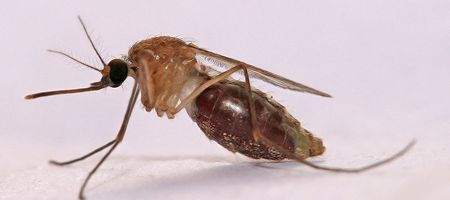The millions of dollars pumped into malaria research by the Bill & Melinda Gates Foundation have paid off: the team’s developed a vaccine that halves the risk of the disease in young children – its most frequent victims.

The PATH Malaria Vaccine Initiative (MVI) trial, conducted on 6,000 children at 11 sites across sub-Saharan Africa, showed that three doses of the RTS,S vaccine reduced the risk of children experiencing clinical malaria and severe malaria by 56 percent and 47 percent respectively.
Research is continuing, and efficacy and safety results in 6 to 12 week-old babies are expected by the end of 2012. Information about the longer-term protective effects of the vaccine, 30 months after the third dose, should be available by the end of 2014.
“A vaccine is the simplest, most cost-effective way to save lives,” says Gates.
“These results demonstrate the power of working with partners to create a malaria vaccine that has the potential to protect millions of children from this devastating disease.”
Malaria, borne by mosquitoes, kills around 781,000 people each year, according to the World Health Organization. Ninety percent of deaths occur in sub-Saharan Africa, with children hardest-hit.
“These results confirm findings from previous Phase II studies and support ongoing efforts to advance the development of this malaria vaccine candidate,” says Tsiri Agbenyega, a principal investigator of the trial and Chair of the Clinical Trials Partnership Committee.
“Having worked in malaria research for more than 25 years, I can attest to how difficult making progress against this disease has been. Sadly, many have resigned themselves to malaria being a fact of life in Africa. This need not be the case.”
The team is now working towards approval by regulatory authorities. If the Phase III trials go well, the WHO has indicated that it could recommend the RTS,S malaria vaccine candidate as early as 2015, allowing African nations to include the vaccine in their national immunisation programs.
Project partner GlaxoSmithKline Biologicals says that the eventual price of RTS,S will cover the cost of manufacture, plus a small surplus that will be reinvested in research and development for second-generation malaria vaccines or vaccines against other neglected tropical diseases.






